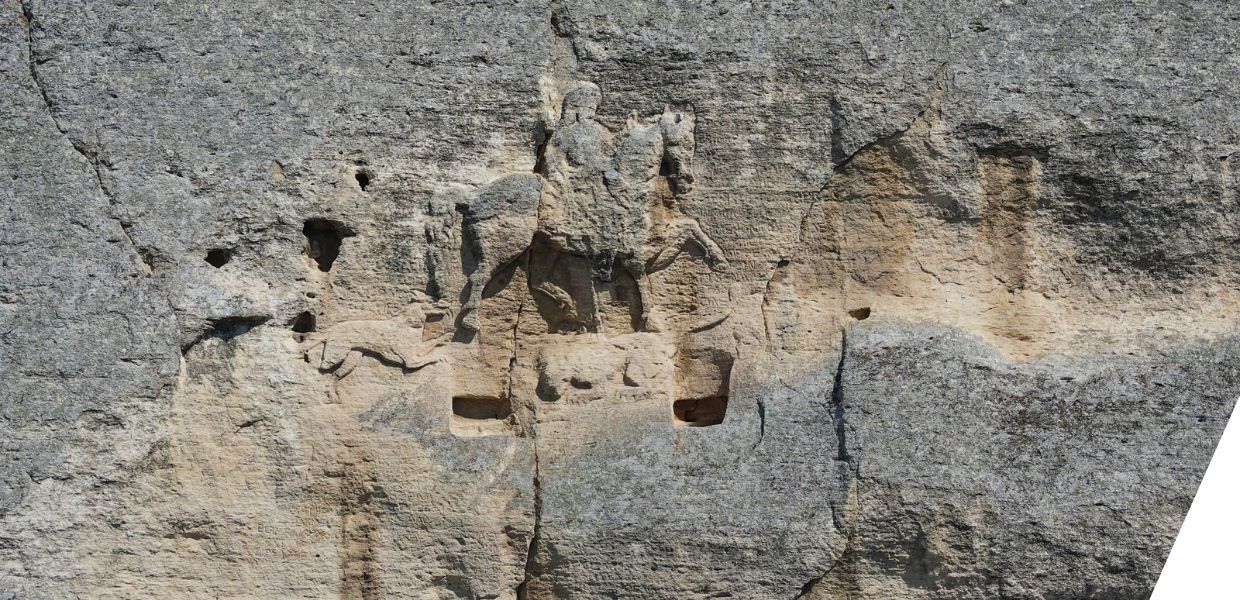About the event
From 11 - 12 April 2024, the Second International Workshop on Strategic Planning of the Unified National Platform for Cultural Heritage took place in the Ministry of Culture in Bulgaria. In focus was the strategy for the digitisation of cultural heritage and the digital transformation of cultural, historical and scientific heritage in Bulgaria, with a particular emphasis on 3D. As such, the event was granted the Twin it! 3D for culture label due to its relevance for and contribution to the Twin it! campaign.
The event was co-organised by the Ministry of Culture's team for the management and coordination of Investment C11. I7 ‘Digitisation of Museum Collections, Libraries and Archives’ by the Recovery and Resilience Plan (RRP) and the Europeana Initiative Country Group for Bulgaria. This team consists of Europeana Initiative members, aggregators and other professionals, who are taking the lead in national cooperation across the common European data space for cultural heritage.
The programme and topics
The event began with a discussion on the common European data space for cultural heritage, which was introduced by Milena Popova, Programme and Business Development Manager at the Europeana Foundation. It continued with a diverse and fascinating range of presentations on good practices from the fields of immovable and intangible heritage.
The experience of digitisation in the Bulgarian Telegraph Agency's archive, the Bulgarian National Film Archive, and the Bulgarian National Radio was featured alongside a creative exploration of the discovery and reuse of digitised collections of performing arts and music. Another highlight was the Google Arts and Culture platform of the Varna City Art Gallery ‘Boris Georgiev’ in Varna, as well as the experience with the open library system of the Regional Library ‘Lyuben Karavelov’ in Ruse.
Technological innovations including 3D laser scanning, ontologies and knowledge graphs, software tools for the representation of collections as data such as the improvement of OCR, searching in collections with different spellings from the 19th-21st centuries, improving the quality of images in historical photographs were also discussed during the event.
The 3D digitisation of cultural heritage, featuring the Bulgarian entry into the Twin It! campaign, the Madara Rider, was in focus as the first ever 3D object submitted by a Bulgarian institution to Europeana.eu. And finally, open innovation was discussed, with several examples of partnerships of smaller cultural heritage organisations with academic institutions stirred by the Erasmus+ Program for Open Innovation in Cultural Heritage eCHOing.
The event's working language was Bulgarian, in line with the Country Groups’ remit to involve more heritage professionals and support professional communication in national languages. Details of the entire program are available here (Bulgarian only).
A significant workshop for the Bulgarian cultural heritage sector
The event was unique for Bulgaria because it gathered more than 100 managers and experts from various fields of cultural and scientific heritage, as well as policymakers, technologists, and researchers. Coming from some 26 different cities, a third of the participants were directors of libraries, museums and galleries.
Previous events related to digitisation in Bulgaria were mainly focused on one specific sector. This cross-sectorial discussion is much needed to shift the thinking into finding solutions for common problems across the sectors, and embracing the opportunities which the common European data space for cultural heritage will create for institutions of different scales, sectors and levels of maturity in digitisation.
The event also built on the first systematic assessment of the situation of digitisation across libraries, museums and archives (recent reports on the three sectors were prepared by the team of Investment C11.I7 under RRP, all in Bulgarian).
Find out more
If you are a Bulgarian speaker interested in the summaries of digitisation across libraries, museums and galleries,explore recent reports prepared by the team of the Ministry of Culture working on the delivery of Investment C11.I7 from the national Recovery and Resilience Plan,
You can also find out more about the Country Groups initiative, and find out how to get involved in the Bulgarian Country Group.
Finally, you can find out more about the Twin it! 3D for Europe’s culture campaign.


